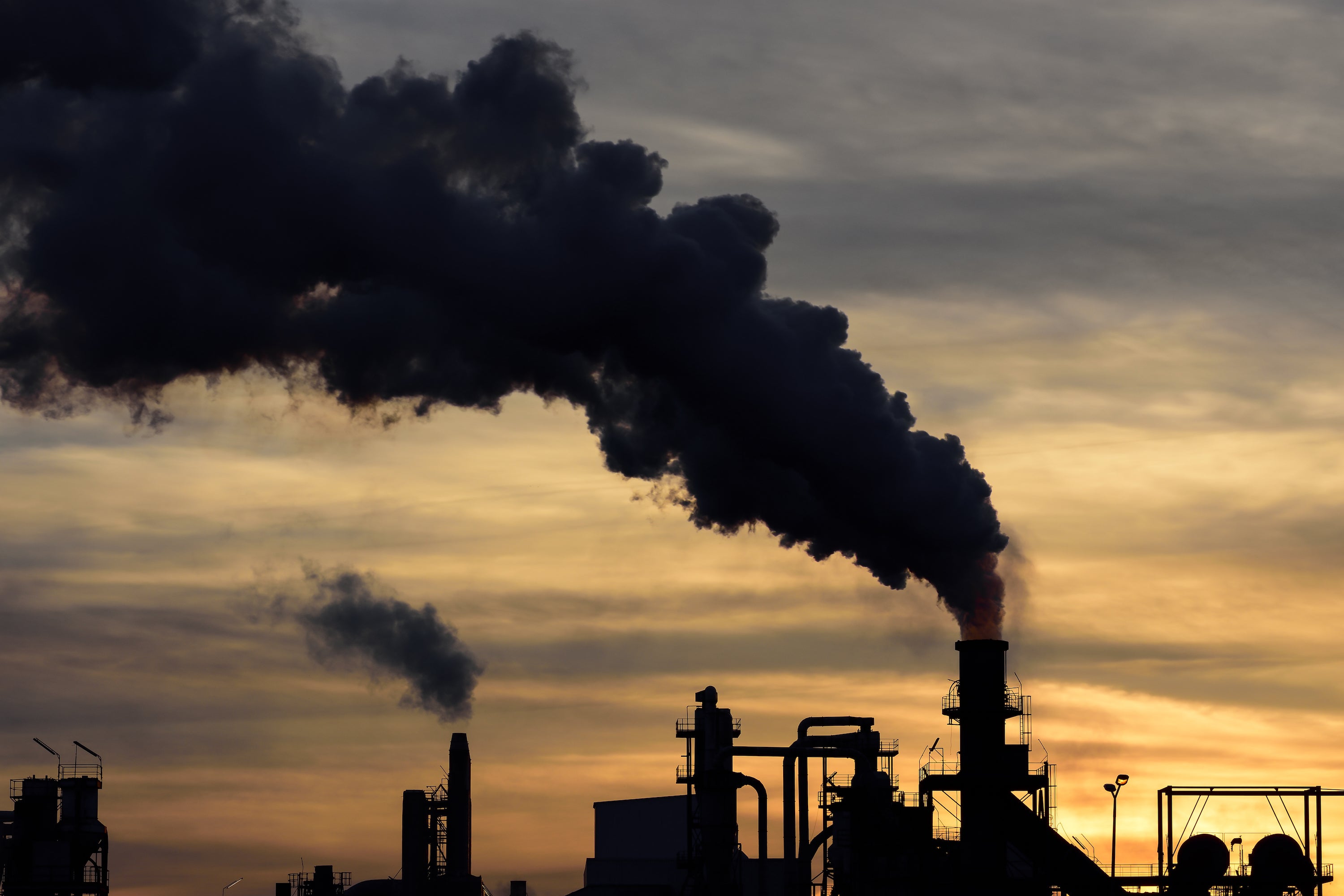The Carbon Dioxide We Dump into the Sky Is Just Another Kind of Garbage

For decades in the climate change debates, we’ve heard that reducing carbon emissions will cost society too much money. Indeed, curbing CO2 emissions is expensive. For a large economy like the U.S., which emits about six billion tons annually, the price tag can range anywhere from a staggering $60 to $600 billion. Every year.
That sounds like a lot, right?
But not so fast. What if we look to other parts of society where we already invest in efforts to clean up after ourselves? It turns out that in three areas—trash disposal, wastewater treatment and street sweeping—Americans are already investing large sums of money. And the payoff isn’t just in cleaner cities and streams. Our commitment to cleaning up after ourselves creates hundreds of thousands of jobs and yields long-lasting benefits to our economy and public health.
It’s time we applied the same mindset to our airborne waste streams.
For inspiration, consider garbage. Each year the U.S. generates over 250 million tons of municipal solid waste. If we didn’t dispose of it properly, the American landscape would be littered with smelly dumps contributing to dysentery, diarrhea and respiratory disease. That’s the main reason trash collection and disposal is a standard requirement for American homes, businesses, and neighborhoods. All told, we readily agree to spend about $200 billion a year on solid waste management.
Our investments in wastewater pay similar dividends. Years ago, Americans pumped untreated sewage and industrial pollution directly into waterways, creating all sorts of problems. In response, cities and the federal government passed legislation reducing pollution and requiring treatment and cleanup. We now spend over $100 billion each year for our water and wastewater treatment systems—a bargain when one considers the nightmare of societies ravaged by waterborne diseases.
It’s harder to calculate a nationwide total for our investments in street cleaning, but we know it’s expensive at the city level. San Francisco alone spends $50 million each year to clean up its streets—about $40 per resident.
If we’re willing to pay to clean up our garbage, wastewater and city streets, why not our gaseous waste? Instead of street sweepers we would have sky sweepers. Instead of waste collection via pipes and trucks, we would have CO2 collection via scrubbers and direct air capture.
How would we do this? First, we should make the problem simpler by cutting our CO2 pollution. The organization Energy Innovation estimates U.S. emissions could be halved within three decades by using policies that have been demonstrated in other countries—approaches such as a carbon tax, clean electricity standards and better efficiency standards.
That would still leave a lot of CO2 to clean up—about three gigatons at present emission rates.
Thankfully, CO2 scrubbing technologies are improving rapidly. Recent analysis indicates that direct air capture of CO2 would cost about $35–75/ton in the next 20–30 years. Compared to the $800/ton we spend managing our solid waste, that’s a bargain. At those rates, scrubbing all the excess CO2 emissions from 0ur common skies would require just over $100 to 225 billion per year. That’s right in line with what we invest now for our other waste streams.
Much of this excess CO2 would be buried underground, but there are geological limits. Fortunately, here too, the way we handle garbage holds suggestions for CO2. Just as we minimize garbage landfills by recycling materials, we could potentially recycle some of our excess CO2, converting it into useful products such as chemicals, fuels and building materials.
Americans didn’t commit to cleaner landfills, streets and streams overnight. The consensus for cleaning up developed slowly as the perils of pollution became painfully clear through environmental catastrophes and public health crises.
One thing that experience taught us is that the price of cleaning up after ourselves isn’t too high. Implemented over time, at the federal and local level, it’s manageable—and well worth the investment.
Ultimately, societies that deal with their waste are wealthy and healthy. Countries that don’t deal with their waste, letting it accumulate and pollute their environment, are sick and poor. Personally, I prefer for the U.S. to be wealthy and healthy, and that means we should deal with our waste. All of it.
If you want to read more science articles, you can visit our science category.
if you want to watch movies go to Film.BuradaBiliyorum.Com for Tv Shows Dizi.BuradaBiliyorum.Com, for forums sites go to Forum.BuradaBiliyorum.Com .




